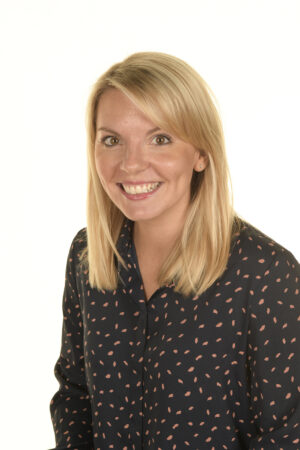In this second conversation as part of the Women Leaders series, I sit down with the headteacher at my current school – Laura Pearce.
Laura has been a headteacher for five years but received the title of headteacher at age of 28. Being young and dynamic, enabled Laura to make some tough decisions which resulted in success, proving that age simply is nothing but a number.
VIEW TRANSCRIPTI wanted a team that was very united, that I could feed off them as much as they could feed off me.

Laura Pearce
Headteacher
Since 2016, Laura Pearce has been a leader in her current school, part of the Enfield Learning Trust. The original Infant school and Junior school were merged to form a large five-form entry primary school in the heart of a highly diverse area of London. The school is one of the largest in the country.
Laura, originally from the Midlands, moved to London where her career rapidly progressed in just a few years. With more than ten years of education experience, she also worked in the role as Executive Headteacher, leading her school alongside a new one form entry primary in its initial stages of becoming a school.
She has provided training within the Trust to other leaders as well as on behalf of Enfield Local Authority, specifically focusing on Leading Wellbeing. The school she is currently leading has recently been awarded the Sandwell Chartermark for wellbeing which adds to other awards during her years in leadership.
Learning points:
- 20:39 – On confidence in your own ability
- 24:17 – On wellbeing
- 26:01 – On support and help
Resources
The Key – How to prioritise staff wellbeing (Laura Pearce)
Have you left a review for Voicing Education – The Podcast?
Each and every review really does make a difference. If you are enjoying the episodes, I’d just like to ask for you to share your appreciation.
Please leave a review:
- Head to voicingeducation-thepodcast/apple or search Voicing Education – The Podcast in Apple Podcasts. (This is easier to do on your phone.)
- Scroll down and click the 5-star rating.
- To show extra appreciation and support – please add a quick sentence (or two) to share what you enjoy about the show.

